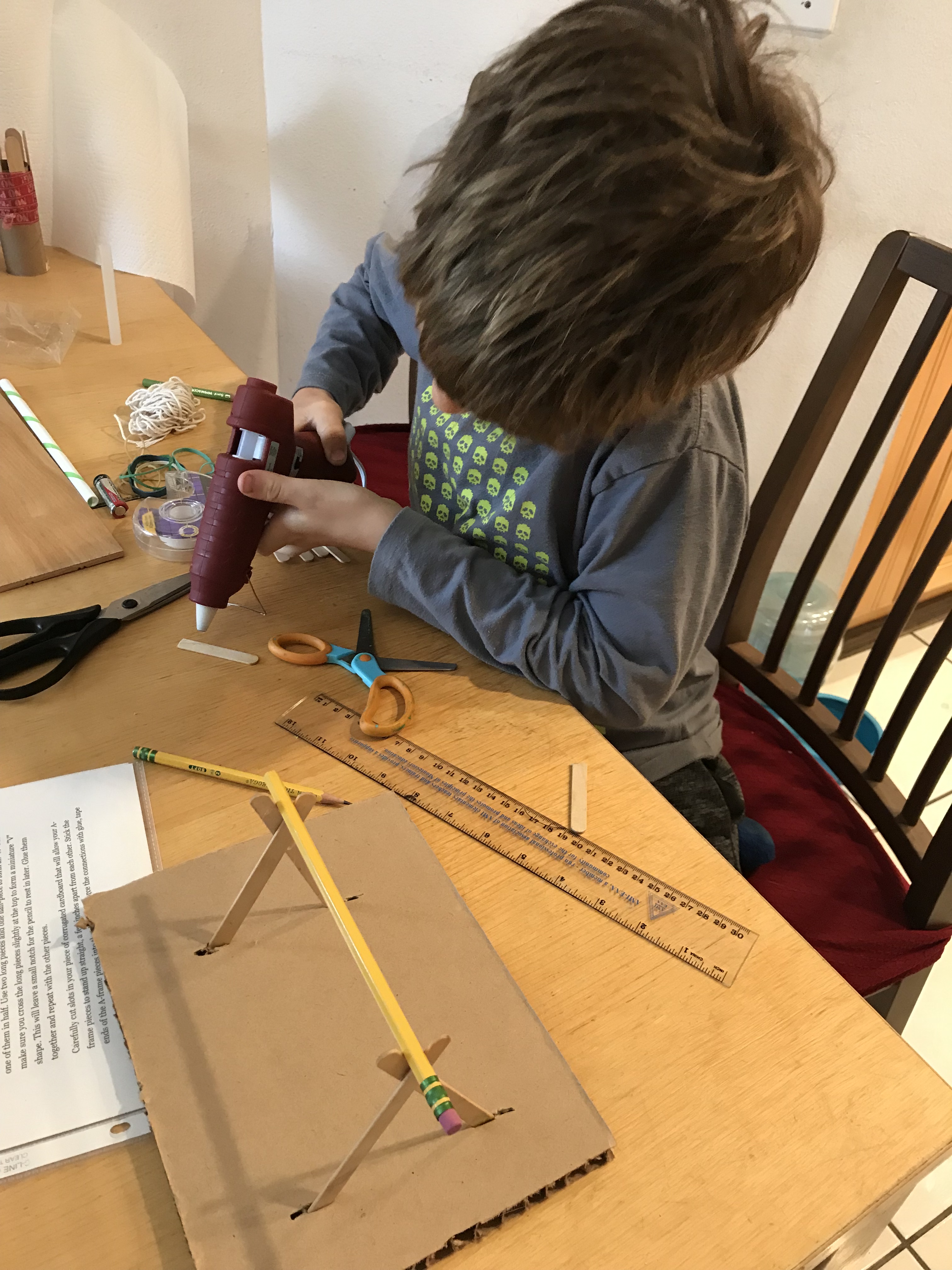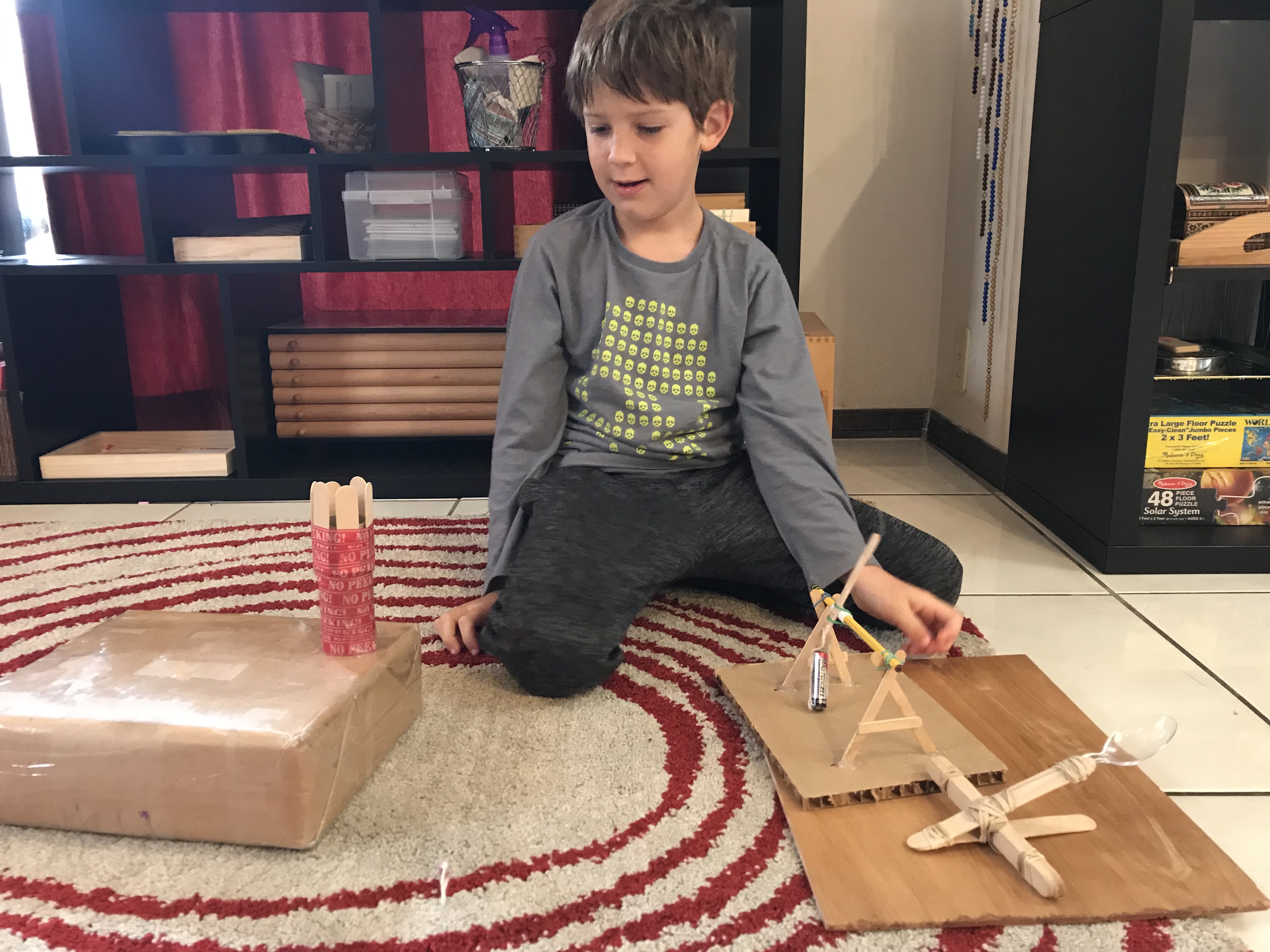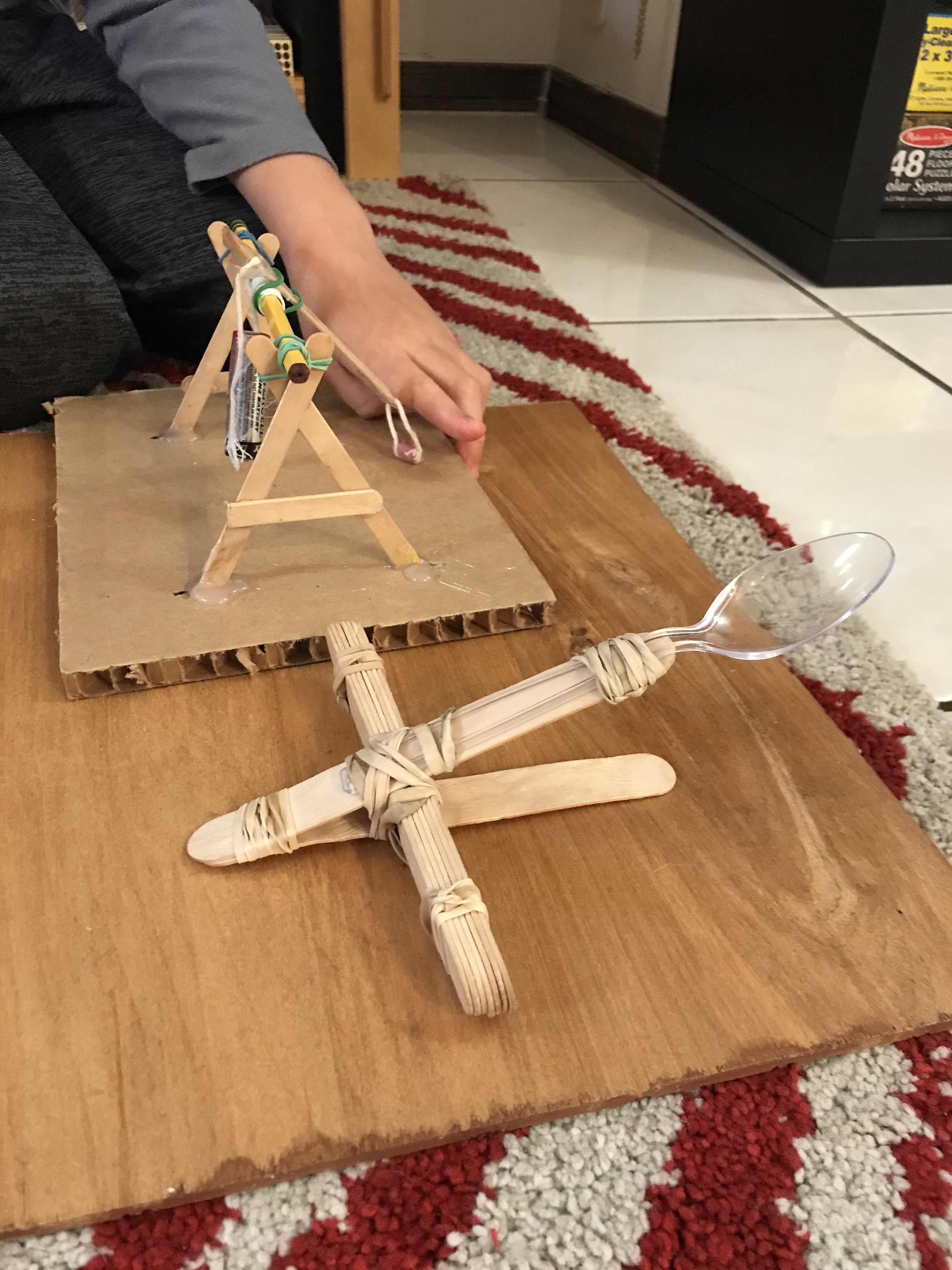The "Annoying" Seven-Year-Old
Seven-year-old Zachary learned how to build a popscicle-stick catapult at a free library workshop last week. Over dinner that night, I "casually" asked my engineer husband if he knew the difference between a catapult and a trebuchet. A brief but interesting discussion ensued, and my son hung on to every word.
Sitting around the kitchen table after breakfast Monday morning, I asked Zachary: "What would you like to explore today?"
He pouted and crossed his arms. "Nothing."
I tried again. "Your pen pal is waiting to hear back from you. Or I could give you ideas for that letter you've been meaning to write to Papa. You could also practice the ukulele." "
That's dumb."
He walked upstairs and threw his lanky body on the floor of his LEGO-strewn room. I followed him.
He mumbled, "I'm not doing anything today."
Then I casually pointed out, "I'm going to be building a trebuchet downstairs." (Because all moms need a trebuchet.) "I would love your help."
His head popped up. He tried to look nonchalant as he followed me downstairs.
Five minutes later, he was reading instructions, gathering materials, and pondering physics. He worked with joy and determination for almost two hours, through fingers scalded by hot glue and countless design adjustments.

We discussed potential and kinetic energy; used fractions and measuring; identified angles and defined new words. He beamed with satisfaction when his creation was complete. He then spent thirty minutes flinging projectiles onto a cardboard castle with his catapult and trebuchet, comparing the tactical advantages and destructive power of both weapons.

Second plane children want need to think for themselves. For many children (and their parents) it can be a time of massive struggle. Dr. Montessori wrote that the seven-year-old "starts to express judgements" and observed that "the adult finds [the seven-year-old] a bit annoying."
"Without a new pedagogic directive, a new battle between the adult and this new child arises... [The adult] must be sure of what he ought to do, of what he ought to say, and of the extent to which he must reply to questions... It is indispensable to the child to feel the security the adult can and must give." Dr. Montessori observed that, "his thoughts could... have the tendency to lose themselves in abstraction by reasonings without end."
Pushing away or shutting down are the second-plane child's ways of saying: I'm feeling overwhelmed by the enormity of the world and I need a concrete activity to ground my imagination. She reminds us to connect the child to "an external activity to which he will give all his potential." You can start anywhere, with any activity that requires the use of the hands and the imagination. But the art of Montessori in the second plane is to help the child connect that one detail to the whole of the Universe. "Each detail holds the child's interest by reason of its strict relation to the others," Dr. Montessori wrote. Therefore, "it is sufficient to choose any one detail which will then become a point of departure in the study of the whole."

You don't need to have a vast depth of knowledge to engage a second plane child. You just need to know enough to get an activity going, and subtly point out a few connections through simple stories. Spend some time today noticing how everything connects to everything else, and think about the little stories you can tell to bring those connections to life. Learning will never look the same again to you or your child.
Join the Montessori Homeschool Hub - the only membership and group coaching program designed to help homeschooling parents motivate and empower their children to become lifelong learners without nagging, punishments, or bribes! Click here to transform your homeschool experience today!
Categories
- 3-6 (8)
- 6-9 (26)
- 9-12 (8)
- Positive Discipline (2)
- Conscious Parenting (12)
- Montessori Curriculum (9)
- Preparation of the Adult (14)
- Preparation of the Environment (11)
- Montessori Principles (11)
- Montessori Homeschooling (20)
- Language Arts (3)
- Math (3)
- Geography (2)
- Biology (1)
- History (2)
- Practical Life (1)
- Montessori Stories (4)

6 comments
I'm finding my 7 year old boy in the same place... although, there's never moment he wants to do nothing, but mostly, nothing of what mom wants!! It's consoling to know that this passes!
Leave a comment